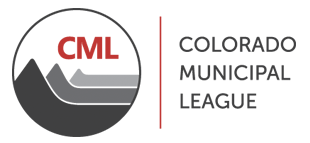Aurora to Appeal Decision Permitting Plaintiffs to File 106 Appeals Late for "Excusable Neglect"
In This Section
By Laurel Witt, Associate Counsel
Aurora to Appeal Decision Permitting Plaintiffs to File 106 Appeals Late for "Excusable Neglect"
Under the Colorado Rule of Civil Procedure (“C.R.C.P.”) 106(b), an appeal of a quasi-judicial decision must be brought within 28 days to district court unless a state statute gives a different deadline. Even though this is a strict rule, a division of the Colorado court of appeals has recently blurred the line by ruling that a plaintiff can seek relief from the deadline on the basis of excusable neglect under C.R.C.P. Rule 6(b).
In the case of Walker Commercial, Inc. v. Brown, Walker Commercial appealed a decision of the Aurora water director to uphold a storm drain development fee. Walker filed its appeal 30 days after the final decision. The plaintiff argued that, because the Aurora municipal code provides that decisions of manager are not effective until 30 days after the decision, the plaintiff should also have 30 days to appeal to court. The code also specifically states that any appeal must be taken in compliance with Rule 106. The district court sided with the City, denied Walker’s Rule 6(b) motion for an expansion of time under a theory of excusable neglect, and dismissed the case for lack of subject matter jurisdiction.
Walker appealed the district court decision, arguing, among other things, that the district court erred in denying Walker’s Rule 6(b) motion for an expansion of time. The applicability of Rule 6(b) to actions arising under Rule 106 was a matter of first impression for the court of appeals. The court of appeals reversed, holding that Rule 6(b), which permits expansion of time at the discretion of the court upon a showing of excusable neglect, includes Rule 106 appeals.
This decision veers away from prior case law which has followed the time limits in Rule 106(b), rather than allowing for any exceptions, including those found in Rule 6(b). The Colorado Supreme Court has held that Rule 106(b)'s 28-day filing requirement is jurisdictional. See e.g., Citizens for Responsible Growth v. RCI Dev. Partners, 252 P.3d 1104, 1106 (Colo. 2011). Thus, a complaint under Rule 106 that is not filed in the district court by the 28-day jurisdictional deadline must be dismissed for lack of subject matter jurisdiction. See Wallin v. Cosner, 210 P.3d 479, 480 (Colo. App. 2009); see also Auxier v. McDonald, 363 P.3d 747, 751 (Colo. App. 2015). The opinion in this case quotes C.R.C.P. 106(b) which says that a statute can change the deadline for filing, but not a municipal ordinance. The court then goes on to say that this case meets the standards “excusable neglect,” veering away from the case law previously cited that strictly followed time limits. While this case is a matter of first impression, moving away from the strict deadline set forth in Rule 106 blurs the end date of a potential appeal and will impact many areas of municipal decision making where Rule 106 appeals are permitted.
CML filed an amicus brief in this case in support of Aurora’s position and the interest of municipalities statewide, written by the author of this article. The brief emphasized that blurring jurisdictional deadlines would have far reaching effects in litigation against municipalities. Commenting on the brief the court said: “We are sympathetic to the concerns raised in the Colorado Municipal League’s amicus brief. We understand the importance of firm deadlines and the need for finality so that municipalities may operate effectively. We are not, however, empowered to rewrite the rules to achieve a particular policy outcome.”
Aurora will be filing a petition for cert with the Colorado Supreme Court in June 2021.
